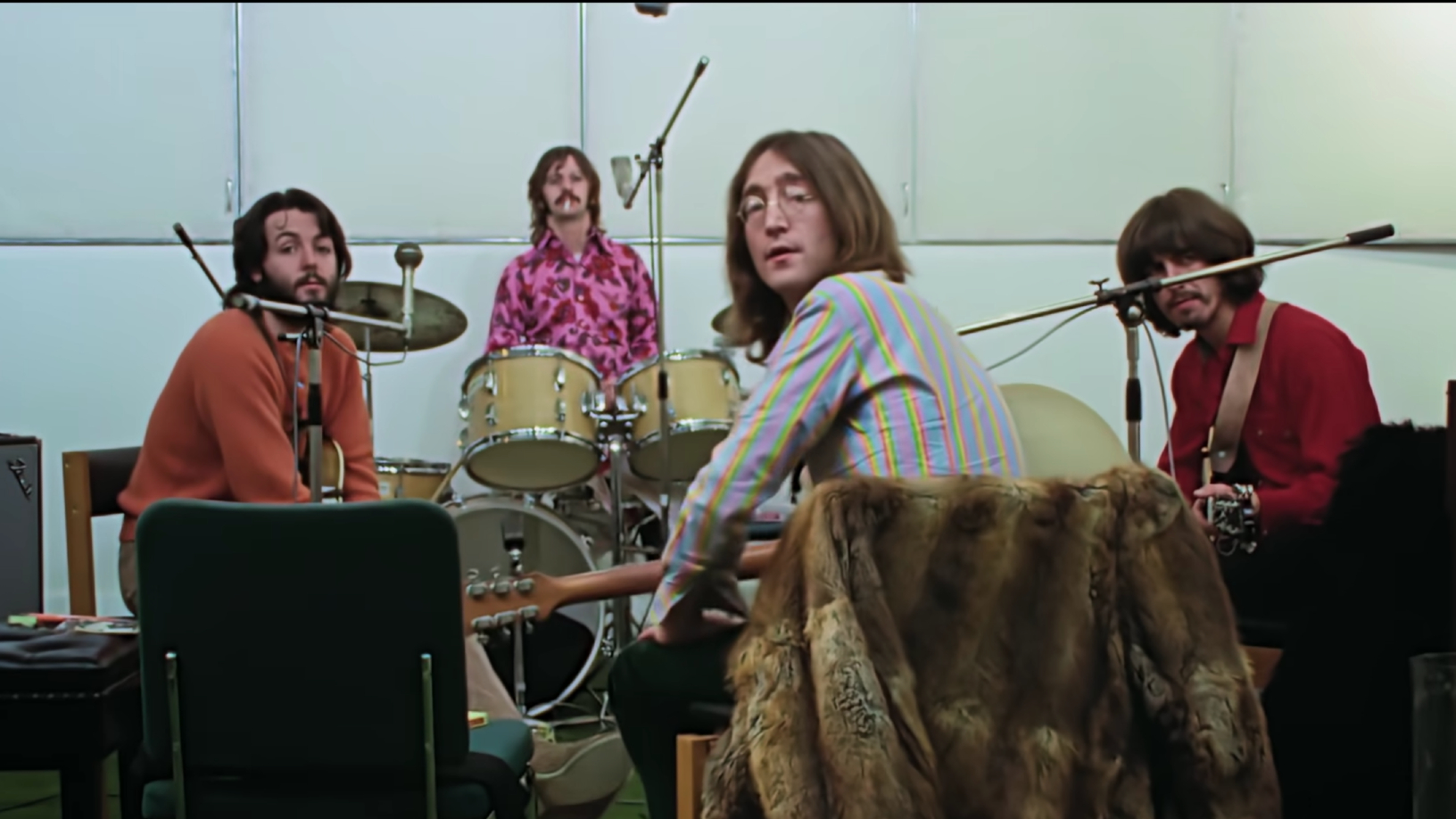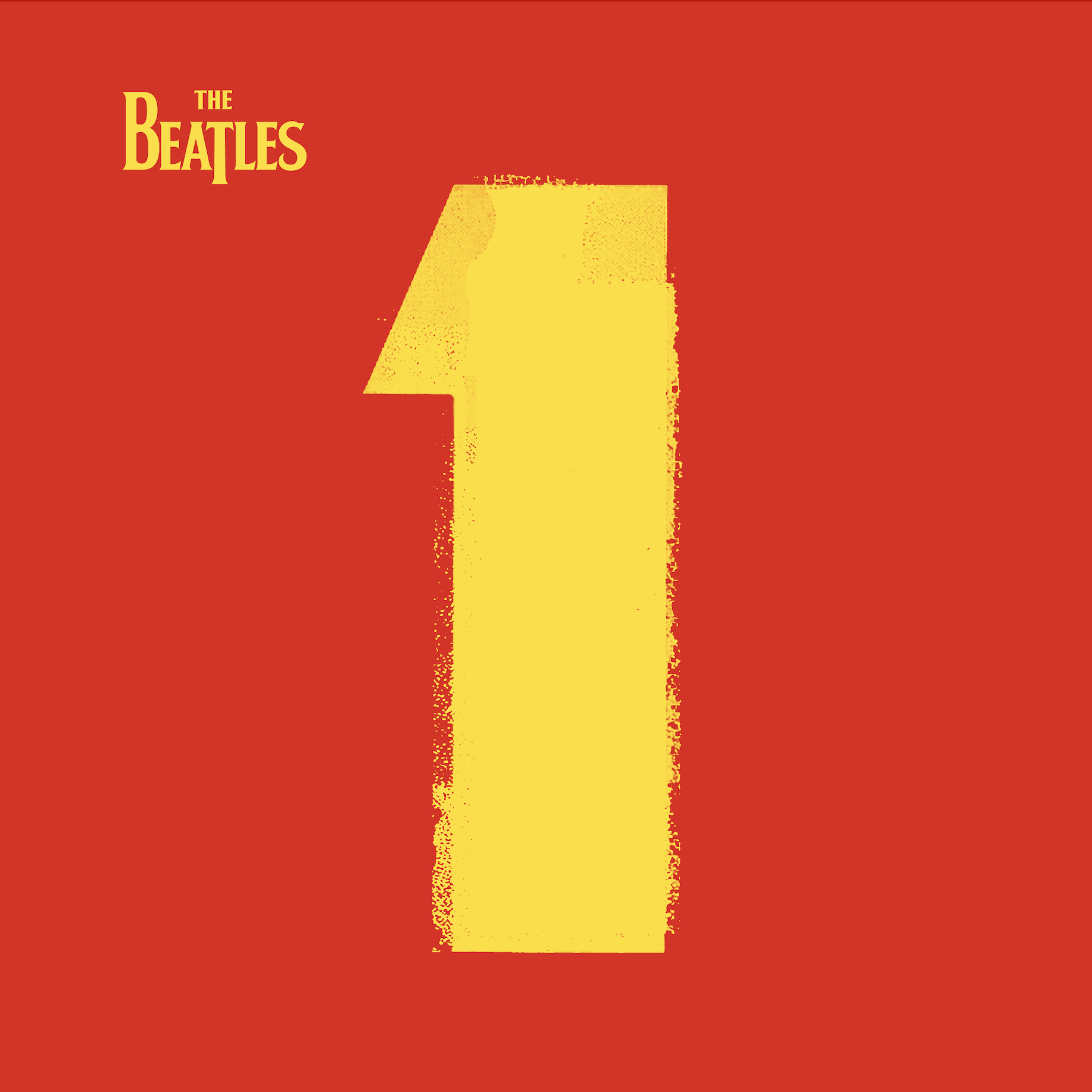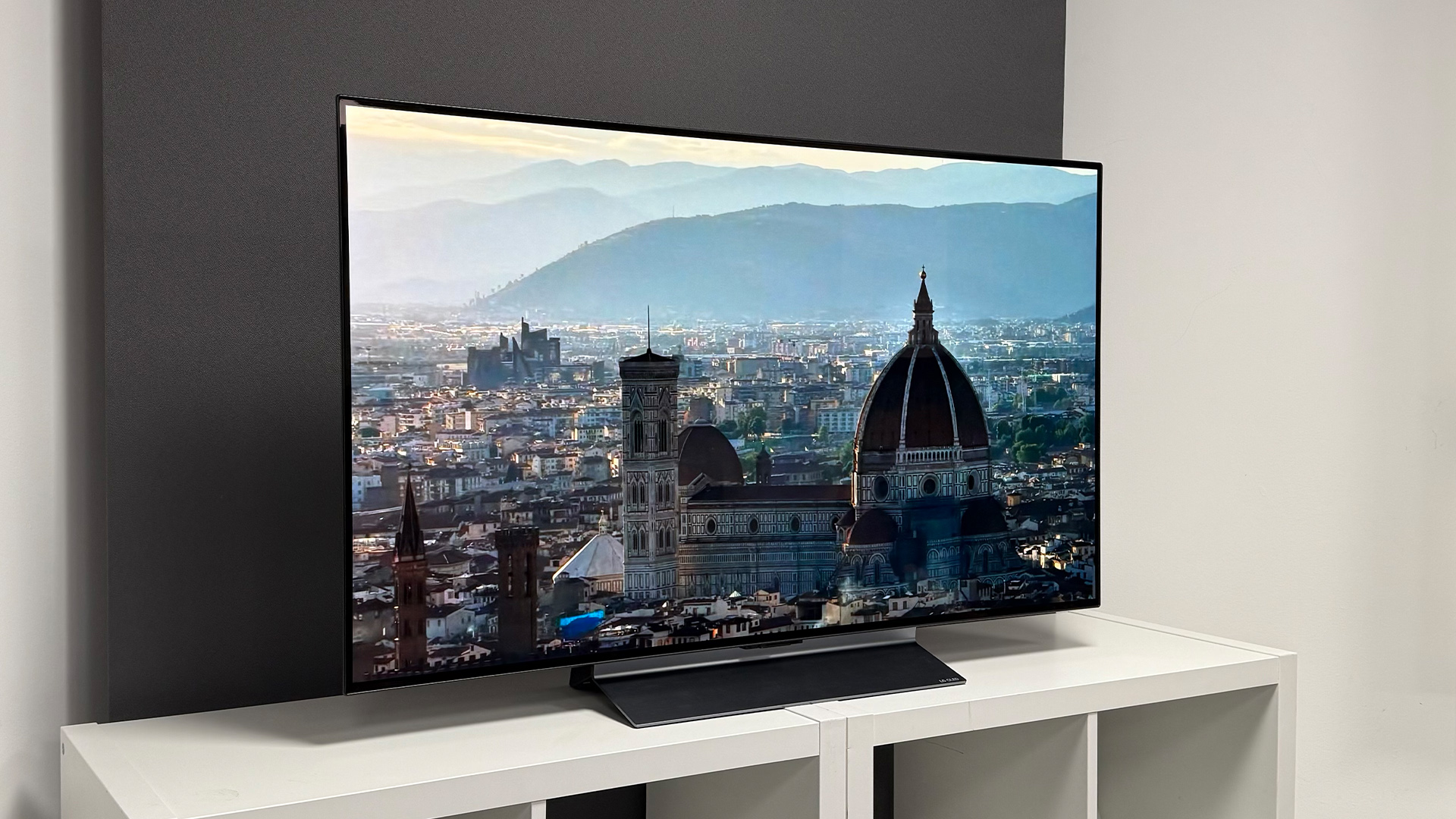4 albums and films to enjoy now you've watched The Beatles: Get Back
Inhaled all the Beatles content there is? Not at all, friend...

If you have yet to watch The Beatles: Get Back please do. Just, watch it, then 'get back' here (sorry). Get Back is available exclusively on Disney+ but there are deals to be had – including, if you're in the UK, up to six months for free if you're an O2 customer or, for those in the US, this streaming bundle.
It's a trilogy and a long one at that, but Michael Lindsay-Hogg's shorter 1970 effort born of the same footage, Let It Be, will not suffice. Get Back is a must for anyone bearing even a passing interest in music composition, recording, the creative process, the friendship of four men from Liverpool who only expected any kind of success to last a few years (before McCartney would have to return to the coil-winding factory) or the cultural mindset of London in 1970.
Why do we recommend it so highly? Here's our pocket review – although, if you've seen it, do scroll down for the 'further reading' listed below.
The overriding selling point of Get Back is the truckload of access and information – in fact, even though Peter Jackson has supplied a transcript during especially heavy moments of dialogue, we recommend watching it with captions turned on so you don't miss an utterance.
Today, we are so acclimatised to watching Netflix documentaries based on real-life events (Inventing Anna, The Serpent, The People v. O. J. Simpson, The Assassination of Gianni Versace) wherein photos of the actual individuals being portrayed are revealed only at the end of the series, that Get Back feels like a boot-shaking jolt of reality – in the best possible way.
When the band invite photographers to snap them during rehearsals at Apple in Savile Row for instance (nothing to do with Steve Jobs, who was still at High School in 1970), the rehearsal footage is interspersed with shots taken that day – as is often done in dramatisations to prove that the director's narrative did not stray too far from reality. Here, when the action resumes, we find ourselves rubbing our eyes, wrongly assuming these conversations are being performed by actors in the roles of John, Paul, George, Ringo and their new pianist Billy. It can't possibly be the legends themselves messing around, idly laying down one of the best songs we have ever heard, calling Ringo a "Scab-head", or washing down copious amounts of toast and marmalade with endless mugs of tea, can it? But it is, you know. And that is momentous, heavy and special.
So yes, go and fall in love with Ringo Starr's casual adoration of Paul, his penchant for dancing, the shy presentation of his new song Octopus's Garden with tender encouragement from George Harrison – and, who could forget, the mortified announcement, "I just farted" at close quarters in their small London studio?
The latest hi-fi, home cinema and tech news, reviews, buying advice and deals, direct to your inbox.
Fair warning: what follows contains important quotes and spoilers from Get Back – so don't read ahead if you haven't watched it yet. But get back to us you will, because once you realise that even eight hours of Beatles footage is nowhere near enough, this is the fix you'll need...
1 by the Beatles in spatial audio (remastered, 2022)

You probably know the well-spoken chap who organises the emergency portable recording equipment to be sent from EMI to Savile Row, where poor Glyn is experiencing an "unacceptable level of distortion and hiss" as they try to ready the studio. It's the same gentleman who helps lash two portable 4-track mixing consoles together to make one 8-track recording desk – and who later advises Paul to, "open that piano for a start" if he wants to hear music.
The man is Sir George Martin – although he wouldn't receive the knighthood until 1996. Last year (and during another series recommended on this list) Paul McCartney told producer Rick Rubin, "George Martin often gave us harmony lines which you had to remember, or else a grown up would tell you off”, which goes a long way to explaining why Martin is often called the fifth Beatle.
Why is any of this important now? The man who remastered the Beatles’ 2000 compilation album, 1, in spatial audio for Apple Music, released on 2nd March 2022, is Giles Martin, George's son.
Giles held a special press conference on 28th February 2022 to discuss why he accepted the task of remastering the 2000 album in spatial audio (the simple answer to which is, he says, "Because they asked me to") and What Hi-Fi? was lucky enough to be in attendance.
According to Giles Martin, the remaining Beatles were the impetus for change and for the re-release of the album in Apple's answer to Dolby Atmos for headphones, spatial audio (and this time, we do mean Steve Jobs' startup, now Tim Cook's behemoth). "Paul and Ringo are always going, 'How can we push technology? How can we change the way?'" Martin said, adding, "Paul says, 'I don't want to be stuck in a museum. I don't want to be under a glass case. I want, you know, people to discover things'".
Are we wholly in favour of it all? On the fence. The fact that Giles Martin went back and actually recorded ambient noise from Studio 2 at Abbey Road to add to the track (you can actually emulate the acoustics of Studio 3 with a Waves Audio plugin, if you wish) does not sit easily with certain parts of Get Back. Are the acoustics of the St. John's Wood studio still relevant and comparable in 2022? And even if they are, is a contemporary addition desirable?
Then, there's the reality issue itself. When listening to a recording of Don't Let Me Down in the second instalment of Get Back, Paul is impressed that the drums are on two tracks. This, he enthuses, means Ringo's drum fill "goes right across the room", to which George Harrison replies, "Sweet man. You know, when we asked for four speakers, the EMI guy said 'What do you want four for? You've only got two ears.'"
Here, the band all laugh. Clearly, playing with sonic distribution in unnatural ways was something the group enjoyed. Add to this an endearing scene that sees roadie Mal stuffing paper into the piano following McCartney's desire to "make it sound bad", like older recordings the group made in Hamburg halls, and it's difficult to simply approve of any contemporaneous tampering with the Beatles' ouevre.
Would Lennon and Harrison dig this overtly realistic, actually-in-the-room-with-them spatial audio idea? We're unsure. Commenting on the song Revolution 9 in a letter co-addressed to a Melody Maker interview George Martin had done after the Beatles split, Lennon wrote, "For Martin to state that he was 'painting a sound picture' is pure hallucination. Ask any of the other people involved. The final editing Yoko and I did alone."
But Giles Martin would argue that John Lennon got in touch with Martin senior the month before Lennon died, and that Martin went to see Lennon in the Dakota building. Apparently, Lennon said, “You know, I'd love to just go back and record everything again properly this time. Come on, we probably could do a lot better this time around". Martin, who considered Strawberry Fields one his finest achievements, was shocked and answered, “What? What about Strawberry Fields?” to which Lennon is said to have pulled his glasses down, looked over them and uttered, “Especially Strawberry Fields”.
The important thing is, for the cost of an Apple Music subscription (free trials are available) you can put your cans on and have a listen for yourself. You decide.
Get 1 in spatial audio on Apple Music
McCartney 3, 2, 1 (2021)
Hindsight is a beautiful thing. An older, even wiser McCartney, waxing lyrical on "John's rhythm thing, he just did it live. I mean you try doing that for three minutes," with deep affection and admiration in 2021 is luminous – nearly 60 years after Lennon recorded the passage for the track in question, All My Loving, in 1963.
Talking to producer Rick Rubin in a rare set of one-on-one interviews (there are six episodes in total, but none more than 31 minutes) McCartney says of the huge amount of the Beatles repertoire that was written on tour busses: “We realised we were writing songs that were memorable, not because we wanted them to be memorable, but because we had to remember them – there were no recording devices!”
In another darkly witty moment, McCartney explains how a chord he and George Harrison learned watching a guy play in a local music shop became known as "F/D-mented" (he still doesn't know its proper name) and that at John's "art parties", he used to wear a black polo neck, sit in a corner with his guitar and pretend to be French. Eventually, this became the inspiration for Michelle, when years later John said to Paul: “You remember that crazy little French song you used to do at the parties? You should finish that.”
If you want to know the significance of a roadie asking Paul to "pass me the salt and pepper" on a flight – although you can probably guess the end result of McCartney mis-hearing that particular request – or why Lucy in the Sky With Diamonds actually has nothing to do with LSD, even though McCartney admits "Everyone was high", this series is pure, non-stop joy.
Musically, it's fascinating to learn that an instrument we've always assumed is a tuba within Maxwell's Silver Hammer is actually an electric bass, played "really short", and to corroborate that it really is roadie Mal playing the hammer and anvil on the track – as seen in Get Back.
Watch McCartney 3, 2, 1 on Disney Plus or Hulu
John Lennon – Love Is All You Need (2010)
The year 2010 saw the 70th anniversary of John Lennon’s birth and it also meant 30 years since his shocking death. Love is All You Need was a documentary released to mark both occasions. Now, 12 years later, it's an 83-minute time capsule in itself, worthwhile not despite its age, but because of it.
The film opens with footage of a young, clean-cut, short-haired Lennon, announcing, "I was bored on the 19th of October 1940, when I believe the nasties were still booming us, led by Madolf Heatlom", which will send your mind straight back to an older Lennon playing with the Rolling Stones' moniker in Get Back, announcing the Beatles' own recordings with, "And now ladies and gentlemen, the Bony Rolls!"
If we're honest, Paul Gambaccini takes up a little too much airtime in Love is All You Need, but other moments are fascinating. We learn, for instance, that McCartney wasn't exaggerating when he said in 3, 2, 1 that everyone wanted to be French at Lennon's art parties – Lennon's first wife, Cynthia Lennon, talks of meeting John at art college and how his love of French film stars led her to go from a redhead with a bob to a long-haired blonde, as "the nearest I could get to Brigitte Bardot, for John."
We also get a return of 'fifth Beatle' George Martin, six years before his death in 2016, who will explain to you how Lennon coined the term "to flange" in recording, a term still used now.
Arguably the most divisive guest is Yoko Ono (after all, Lennon and Cynthia's child, Julian, was just seven years old by the time he left Cynthia for Yoko) and the documentary's guests don't help Ono's case. But, as if in defence of her very existence, Lennon talks lovingly of her, lauding her art in footage taken from various TV interviews. In Get Back, Ono is a constant but peripheral figure and one who doesn't seem particularly supportive of the band, sometimes noisily reading newspapers or painting in the studio.
Did Yoko Ono crush John Lennon's glorious sense of silly, British surrealist humour? Actually, we don't think so – we think that was fame. But watch it and make up your own mind.
Watch John Lennon – Love is all You Need on Netflix
Yesterday (2019)
Imagine if the Beatles' entire body of work never existed? Or that it exists, but only in an alternate reality inhabited by one man – who happens to be a struggling singer-songwriter. That is the premise of this 2019 feature film, directed by Danny Boyle.
In essence, it's as fervent a love letter to the Beatles as you're ever likely to find, because of course upon reintroducing the fab four's hits to an unsuspecting and (almost entirely) ignorant world, Jack Malik (Himesh Patel) is catapulted to the level of celebrity he both craves and is completely unprepared for.
Watch out for an inspired appearance from Ed Sheeran – it takes some cojones to go on camera and suggest that "Hey Dude" would sound much better than "Hey Jude" – and see if you can even begin to make peace with the idea of a 78-year-old happy, peaceful artist who lives in a paintbrush-filled house by the sea, because he never became a Beatle...
Buy or rent Yesterday on Prime Video
MORE:
See also the 4 best documentaries to watch on Netflix this weekend (that aren't Inventing Anna)
Or the 3 best sports documentaries to watch on Netflix this weekend
Playing PS5 this weekend? Forget Elden Ring, for amazing picture and sound, you need to play this instead
Becky has been a full-time staff writer at What Hi-Fi? since March 2019. Prior to gaining her MA in Journalism in 2018, she freelanced as an arts critic alongside a 20-year career as a professional dancer and aerialist – any love of dance is of course tethered to a love of music. Becky has previously contributed to Stuff, FourFourTwo, This is Cabaret and The Stage. When not writing, she dances, spins in the air, drinks coffee, watches football or surfs in Cornwall with her other half – a football writer whose talent knows no bounds.
